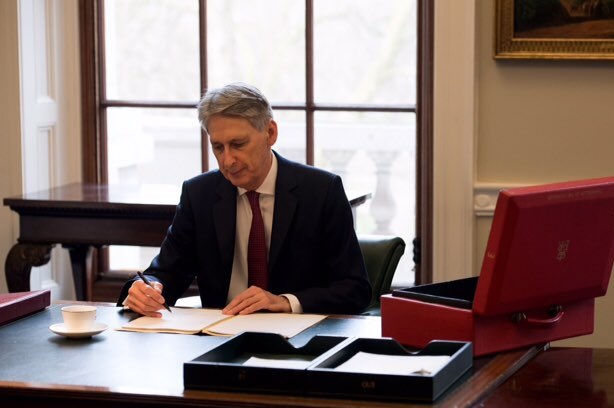Experts welcomed the UK Budget as a “promising first step” for investment in the country’s telecoms infrastructure as it offered new funding for 5G.
However, analysts noted that UK telcos or consumers, or both, will be hit with rises in their roaming costs outside the EU due to VAT changes.
There was cautious welcome for Chancellor Philip Hammond’s announcement of £16 million funding for a 5G technology hub, although some raised other areas that needed attention.
Simon Williams, Senior Vice President at NTT DATA said that the investment was a “promising first step in what has been a neglected area of investment”.
Stuart Orr, Advisory Partner at EY, noted that investors in driverless cars, a technology which will rely on the low latency technology in the future, would welcome the news in particular.
Kysha Gibson, a Partner at management consultancy Baringa Partners, said that looking at the network infrastructure would not be sufficient.
“The Government’s 5G investment must go beyond the technology itself and be used to stress test the quality and feasibility of this ultra-fast network,” she said.
Gibson also said that work needed to be done to assess how the UK can offer services based on 5G that differentiate the country.
“This means preparing the foundation – processes, people and legislature – so that when 5G becomes a commercial product, businesses are ready to go to market with it.”
Hammond also announced £200 million in funding for full fibre local broadband networks, which Andrew Ellis, Professor of Optical Communications at Aston University, said alongside the 5G announcement could help lead to considerable economic growth.
However, Ellis noted that future intervention should focus on addressing areas that are less profitable and hence poorly served.
He said that the Government could boost coverage in poorly served areas by “perhaps leapfrogging 4G and G.Fast in some areas and going straight to 5G and fibre-based broadband technologies.”
Meanwhile, the Chancellor’s implementation of VAT for roaming outside the EU, which will lead to a 20 percent increase in prices, signals what the UK’s roaming future will look like after it leaves the EU, according to Daniel Lyons, indirect tax partner at Deloitte.
Lyons said “it had been envisaged that VAT-free roaming would also apply to use and enjoyment of devices in the remaining EU member states.
“However, the Chancellor’s announcement today shows this is unlikely to be the case.”
Overall, KPMG’s Alex Holt welcomed the support from the Government, he added that this did not change the reality that “major communications infrastructure operators are being asked to invest billions in the UK’s digital future in a less than certain regulatory environment, and a future where the dominant US platform businesses will reap a majority of the economic rewards from that investment.”



